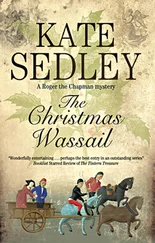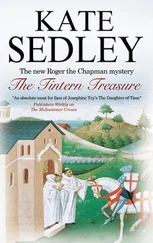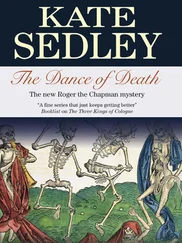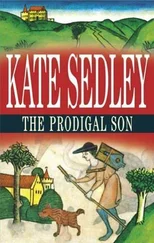Kate Sedley - The Plymouth Cloak
Здесь есть возможность читать онлайн «Kate Sedley - The Plymouth Cloak» весь текст электронной книги совершенно бесплатно (целиком полную версию без сокращений). В некоторых случаях можно слушать аудио, скачать через торрент в формате fb2 и присутствует краткое содержание. Год выпуска: 1992, ISBN: 1992, Издательство: Harpercollins, Жанр: Исторический детектив, на английском языке. Описание произведения, (предисловие) а так же отзывы посетителей доступны на портале библиотеки ЛибКат.
- Название:The Plymouth Cloak
- Автор:
- Издательство:Harpercollins
- Жанр:
- Год:1992
- ISBN:9780061043208
- Рейтинг книги:3 / 5. Голосов: 1
-
Избранное:Добавить в избранное
- Отзывы:
-
Ваша оценка:
- 60
- 1
- 2
- 3
- 4
- 5
The Plymouth Cloak: краткое содержание, описание и аннотация
Предлагаем к чтению аннотацию, описание, краткое содержание или предисловие (зависит от того, что написал сам автор книги «The Plymouth Cloak»). Если вы не нашли необходимую информацию о книге — напишите в комментариях, мы постараемся отыскать её.
The Plymouth Cloak — читать онлайн бесплатно полную книгу (весь текст) целиком
Ниже представлен текст книги, разбитый по страницам. Система сохранения места последней прочитанной страницы, позволяет с удобством читать онлайн бесплатно книгу «The Plymouth Cloak», без необходимости каждый раз заново искать на чём Вы остановились. Поставьте закладку, и сможете в любой момент перейти на страницу, на которой закончили чтение.
Интервал:
Закладка:
'Who was it?' he asked. 'That creeping plague-spot, Silas Bywater?'
I eased myself full-length on to the mattress, propping myself up on my elbows. 'I didn't get a proper look at him, but somehow I don't think so. He was too tall and too slender. More the build of that man who was watching us at supper yesterday evening. I think perhaps the Duke was right and you're in danger from… from people anxious to prevent this letter you're carrying reaching Duke Francis, in Brittany.' I hesitated, then added: 'And there maybe others, for different reasons, who… who wish to see you dead.' He shrugged with every appearance of indifference, but conceded gruffly: 'It seems the King's tame pet of a brother was right to appoint you my guardian, after all.' He stretched and yawned. 'I'm tired. I'll see if I can bar the other door and then we'll be able to sleep soundly until morning.' It was the nearest a man like him would ever come to thanking me for saving his life.
There was indeed another trestle at the opposite end of the room and Philip Underdown dragged it across the doorway.
Both entrances to the Infirmary were now barred, and we slept, if a trifle fitfully on my part, until the first pale shreds of daylight filtered through the slits of the window. Wearily I forced my aching limbs from bed, roused my companion, gathered our things together and went in search of the Abbey lavatorium. Here, we washed and scraped the stubble from our chins as best we could in the icy water before standing in line yet again for a bowl of thin gruel, a hunk of the previous day's bread and two oatcakes. Thanks to our cleanly habits, we were almost the last to arrive in the refectory, the only person later than ourselves being the well-dressed stranger.
That he was well-dressed, I now had a chance to observe; a polite, quiet man with a long, thin face and a rather lugubrious expression, who gave the impression of being unable to say boo to a goose. But I knew from experience that such an appearance could be deceptive. I invited him to sit with us, wondering what his reaction might be, but he accepted with every indication of pleasure, I did my best to engage him in conversation, but found him unforthcoming. Apart from learning that he had spent the night in the seclusion of the Abbot's parlour, he told me little else.
Sitting opposite us were the two friars, one of whom was having trouble tearing his hunk of bread into manageable pieces. Glancing up, he asked the stranger, who was sitting immediately facing him, if he could borrow his knife. 'For, as you know, my son, we are forbidden to carry them.'
My new acquaintance fumbled at his belt, hesitated and looked flustered. 'I'm sorry. I seem to have mislaid it. I must inquire if it has been discovered before I leave.' Philip Underdown's head turned sharply at this. 'Lost your knife, have you? We found one, didn't we, Roger? Show it to the gentleman. It could be his.'
I stooped down and untied the bundle at my feet, producing the knife, its blade wound round for protection with a scrap of woollen cloth torn from the square. 'As you see,' I said, pushing it towards the stranger, 'it's a good one. It has a silver handle.'
He hesitated, and I could almost feel the itch in his palm as he restrained the impulse to claim it. But: 'No,' he said resolutely, shaking his head, 'that doesn't belong to me.
Mine has a handle inlaid with enamel. You should place that in the keeping of one of the brothers. It's valuable.'
'So you can reclaim it later,' I thought to myself, satisfied that he was indeed the owner. I surreptitiously pressed Philip's foot with mine, and he returned the pressure with interest. 'We'll see it's properly bestowed before we leave.' I said aloud. 'Which reminds me, we should be on our way.' I swallowed the last of my ale and glanced pointedly at my companion's still full cup, then turned again to the other man. 'Are you travelling south? If so, would you care to join us? Three are always greater protection than two against misfortune.' I added mentally: 'And we can keep you under our eye.'
'Er — thank you, no. I shall be riding north-west to Tavistock. I have business there. But God be with you both. Have a safe journey.'
Philip had swilled down his ale in almost one gulp, and now rose to his feet, wiping his mouth on the back of his hand. 'We intend to,' he answered shortly, 'make no mistake about that.' He inclined his head towards the two friars, who raised their hands in blessing. 'I'm ready,' he said to me. 'Let's be going.'
We made our way to the Abbot's stables, where we found our horses already fed and watered and only waiting to be saddled. When this was done, we led them into the courtyard and mounted, Philip springing up easily, myself hauling one leg painfully after the other, the injury of the past night adding itself to my other woes of stiffened thews and sinews.
Philip watched impatiently, suddenly anxious to be gone and put as many miles as possible between us and the man we were both now convinced was his attacker. If we could reach Plymouth well ahead of time — for neither of us had any real doubt that he would follow us — we might be able to go to ground until tomorrow, when the Falcon should arrive in Sutton Pool to take Philip on board and carry him safely to Brittany.
As I settled myself as comfortably as I could in the saddle, I reflected that today must be the first of October and tomorrow was therefore my birthday. The Duke of Gloucester's also. We would both be twenty-one years old, but there the similarity ended. He was Constable and Admiral of England, Warden of the West Marches towards Scotland, Great Chamberlain and Steward of the Duchy of Lancaster beyond Trent. He was the King's strong fight arm, a husband and a father. Whereas I was a humble chapman, a failed monk with no kith nor kin to call my own. Yet our paths had already crossed twice. Perhaps our lives were destined to intertwine.
My reverie was interrupted. 'Are you going to sit there all day, like a stuffed chicken?' my companion demanded rudely. 'For God's sake, let's be off.'
I nodded and dug my heels into the rouneey's sides, but just at that moment the gate into the stableyard burst open and Silas Bywater appeared. He reached up and grabbed Philip's bridle.
'You haven't seen or heard the last of me, you know, so don't think it. Here! I've got this for you.'
He was trying to push something into the other man's hand, but Philip hit him in the face, sending Silas sprawling in the dirt, jerked his horse's head around and vanished through the gateway, calling to me to follow. Before I had sufficiently gathered my wits to do so, however, Silas was on his feet again and standing at the cob's head. He raised one hand to mine, his battered features contorted with rage and hatred.
'Here, you give it to him,' he said. 'Tell Philip Underdown one day I'll catch up with him and then he'll be sorry. I know too much about him.'
Once more I gave my horse the office to start, but as the animal moved forward, I glanced down curiously at the thing in my hand. It was a trailing plant stem, with small clusters of white flowers at intervals along its length. Being country born and bred, I recognized it immediately as a common weed of most cultivated ground, which flowered from midsummer until late into the autumn. And it was because of the arrangement of those flowers that it was known as knotgrass.
We reached Plymouth by mid-afternoon, having travelled harder and faster than the day before. In other circumstances, I would have protested and insisted on taking more rest; but with our nameless adversary probably close behind us, I did not dare, and put up with my aches and pains as best I could.
I cursed that I had not asked the fellow his name, but Philip shrugged and said it would have been pointless.
Читать дальшеИнтервал:
Закладка:
Похожие книги на «The Plymouth Cloak»
Представляем Вашему вниманию похожие книги на «The Plymouth Cloak» списком для выбора. Мы отобрали схожую по названию и смыслу литературу в надежде предоставить читателям больше вариантов отыскать новые, интересные, ещё непрочитанные произведения.
Обсуждение, отзывы о книге «The Plymouth Cloak» и просто собственные мнения читателей. Оставьте ваши комментарии, напишите, что Вы думаете о произведении, его смысле или главных героях. Укажите что конкретно понравилось, а что нет, и почему Вы так считаете.












